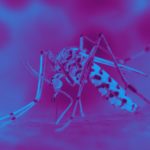Lien vers Pubmed [PMID] – 21629651
PLoS ONE 2011;6(5):e20179
Mass treatment as a means to reducing P. falciparum malaria transmission was used during the first global malaria eradication campaign and is increasingly being considered for current control programmes. We used a previously developed mathematical transmission model to explore both the short and long-term impact of possible mass treatment strategies in different scenarios of endemic transmission. Mass treatment is predicted to provide a longer-term benefit in areas with lower malaria transmission, with reduced transmission levels for at least 2 years after mass treatment is ended in a scenario where the baseline slide-prevalence is 5%, compared to less than one year in a scenario with baseline slide-prevalence at 50%. However, repeated annual mass treatment at 80% coverage could achieve around 25% reduction in infectious bites in moderate-to-high transmission settings if sustained. Using vector control could reduce transmission to levels at which mass treatment has a longer-term impact. In a limited number of settings (which have isolated transmission in small populations of 1000-10,000 with low-to-medium levels of baseline transmission) we find that five closely spaced rounds of mass treatment combined with vector control could make at least temporary elimination a feasible goal. We also estimate the effects of using gametocytocidal treatments such as primaquine and of restricting treatment to parasite-positive individuals. In conclusion, mass treatment needs to be repeated or combined with other interventions for long-term impact in many endemic settings. The benefits of mass treatment need to be carefully weighed against the risks of increasing drug selection pressure.

